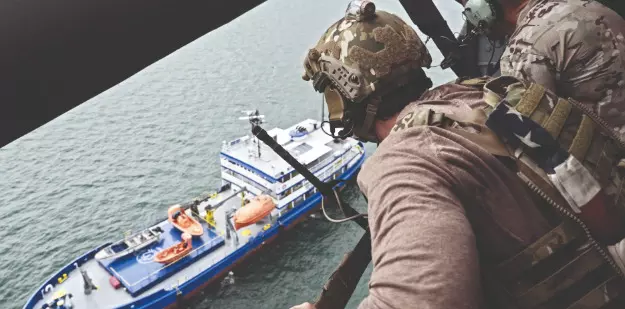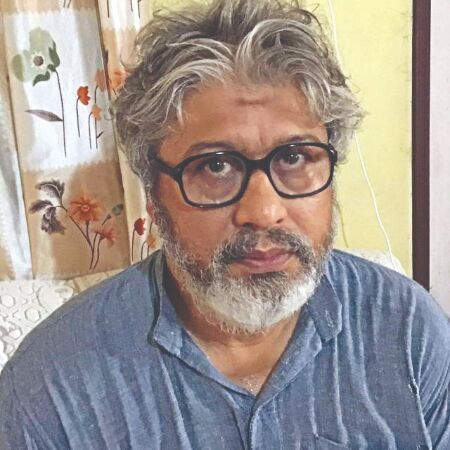Oil, Power, Conflict
With military strikes, sanctions, and oil wars, Washington’s supremacy faces challenges from Beijing, Moscow, and Caracas, revealing a new world order reshaping global energy and security

On the afternoon of September 2, the US President informed reporters that the US military had killed 11 “drug traffickers” from Venezuela during a “kinetic strike” in the Caribbean Sea. Later, Trump used his social media platform to write: “The strike occurred while the terrorists were at sea in international waters transporting illegal narcotics, heading to the United States.” Trump also posted a video that appeared to show a speeding boat being destroyed by an air strike. Moreover, the vessel was in international waters. If it had been a flagged vessel, the attack would have been considered to have occurred on that country’s territory. In the eyes of many people around the world, those on the boat were civilians, and the attack would be seen as an extrajudicial killing, reported Reuters. The US Vice President JD Vance, who enjoys the backing of the PayPal Mafia group, defended the action, controversially saying he “doesn’t give a sh*t” about legal concerns, sparking backlash. Venezuelan President Nicolás Maduro condemned the strike, calling it a fabricated justification for regime change, and mobilised civilian militias in response. The Pentagon has deployed warships, submarines, marines, and F-35 jets to the region, while Trump warned Venezuelan jets could be shot down if they threaten US forces. The standoff raises fears of full-scale military conflict in the Caribbean.
Significantly, the US President announced this unprecedented air attack on a civilian boat journeying in international waters at a time when Indian Prime Minister Narendra Modi, Russian President Vladimir Putin, and Chinese President Xi Jinping huddled together in China, smiling broadly and clasping hands at a meeting (August 31–September 1) of the Shanghai Cooperation Organisation (SCO). After the SCO meeting, the leaders of China, North Korea, Iran, and Russia assembled in Beijing to watch a high-tech military hardware show and thousands of marching soldiers to commemorate the 80th anniversary of World War II and the defeat of imperial Japan. The gatherings in China that week sent a bold message to the United States and its allies of a burgeoning shift away from a US-dominated, Western-led world order. Trump himself indicated he was the leaders’ target. In a message on social media to Xi, he wrote: “Please give my warmest regards to Vladimir Putin, and (North Korean leader) Kim Jong Un, as you conspire against the United States of America,” reported AP.
It appears that the Trump administration has decided to open two more war fronts (in addition to Ukraine and the Gaza Strip) in Venezuela and Qatar. On September 9, the US ally Israel launched an air attack on the Qatari capital Doha, targeting Hamas leaders. It was the first such attack by Israel on Qatar, which has been a key mediator in ceasefire talks between Israel and Hamas and hosts the region’s largest United States military base, Al Udeid Airbase.
Since 2005, the US administration has imposed targeted sanctions against Venezuela, a country with the largest oil reserves in the world—higher than Saudi Arabia. In July 2025, the US Treasury Department issued a restricted license to Chevron, allowing the company to operate in Venezuela and export its oil after a three-month pause triggered by stricter policies toward sanctioned Venezuela. According to the 2022 BP Statistical Review of World Energy, Venezuela has more proven oil reserves than any other country in the world. Venezuela’s 304 billion barrels of proven reserves just edge out Saudi Arabia’s 298 billion barrels. Both are far ahead of the US proven reserves of 69 billion barrels. The US has about 55 billion barrels of oil. This means that Venezuela’s reserves are more than five times those of the US. Despite this, Venezuela is among the poorest countries in the world. One reason for the decline of Venezuela’s oil industry is that many countries — including the US — have placed various sanctions on Venezuela over the years, reported Forbes.
In August 2025, the US announced a $50 million reward for Maduro’s capture—twice the bounty once offered for Osama bin Laden—to end Maduro’s 12-year rule. Earlier, through Executive Order 14245 signed by Donald Trump on March 24, 2025, the US announced a 25 per cent tariff on all goods imported into the United States from any country that imports Venezuelan oil. Reacting to this, Venezuelan Foreign Minister Yván Gil Pinto announced in May that the country was ready to grant BRICS member states priority access to its oil and gas projects. He noted that Venezuela was already actively cooperating with BRICS nations such as Russia, China, India, and South Africa. President Nicolás Maduro expressed strong support for BRICS, viewing the alliance as central to Venezuela’s geopolitical future.
It may be recalled that Beijing has been a key ally of Maduro and his predecessor, the late President Hugo Chávez, and is currently buying more than 90 per cent of Venezuela’s total oil exports. Chinese state oil giant CNPC was among the largest investors in Venezuela’s oil sector before US energy sanctions were first imposed in 2019. China was also a major lender to Venezuela. In a strategic move, which will have a momentous impact on the global oil market, China Concord Resources Corp (CCRC), which has entered into a 20-year production-sharing contract with Venezuela, has begun developing two Venezuelan oilfields, planning to invest more than $1 billion in a project to produce 60,000 barrels per day of crude oil by the end of 2026. The project marks a rare investment by a private Chinese firm in the OPEC country, which has struggled to attract foreign capital due to international sanctions. In the first week of September, the first new floating facility to produce crude at the $1 billion project operated by CCRC arrived in Lake Maracaibo, the country’s second-largest output region.
China now controls Venezuela’s oil in the USA’s backyard. In response to the dramatic bombing of a Venezuelan boat by the United States, President Nicolás Maduro’s mobilisation of millions of Venezuelan militiamen is the latest in a long saga of political acrimony. Political analysts believe that China is the only international actor capable of non-violently compelling Venezuela toward productive international engagement. It could also push it toward confrontation with the USA. While meeting with Venezuelan President Nicolás Maduro on the sidelines of the celebrations marking the 80th anniversary of the victory in the Soviet Union’s Great Patriotic War, Chinese President Xi Jinping assured him that China and Venezuela are good partners of mutual trust and common development, and that China will, as always, firmly support Venezuela in safeguarding sovereignty, national dignity, and social stability. This strong Chinese support has jeopardised Washington’s desire that Venezuelan oil could ease international energy prices and blunt the Russian war machine.
America’s hegemony over global oil since World War II is over for sure. Its strong military-industrial complex is also losing its technological edge to China, Russia, North Korea, and Iran. A multipolar world order is now a reality.
Views expressed are personal



